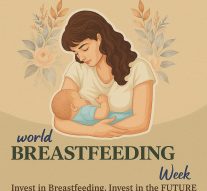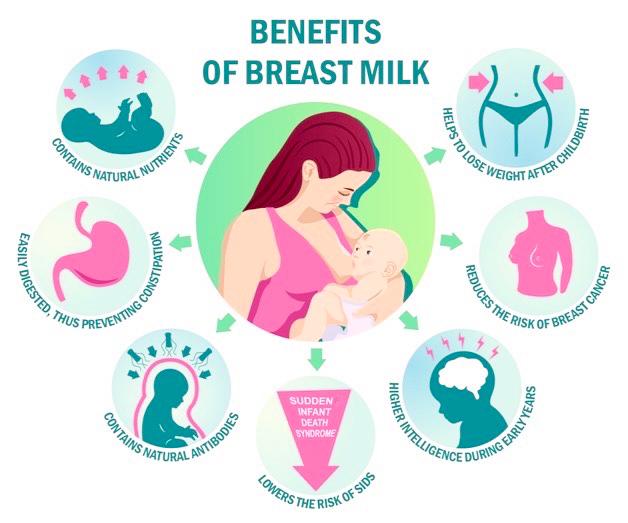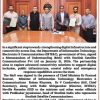Goa is abuzz with excitement as vintage bike and car owners, users, collectors and fans are decking […]

BREAST FEED IS THE BEST FEED: Nature’s First Immunization! By Dr Amit Dias, MD
Aug 02-Aug 08, 2025, MIND & BODY, HEART & SOUL August 1, 2025As we observe World Breastfeeding Week (August1-7) with the 2025 theme “Create Supportive Environments for Sustainable Breastfeeding,” let’s take a closer look at why breastfeeding is more than just a personal choice—it’s a powerful public health strategy.
Where Do We Stand?
Despite strong recommendations, only 63.7% of Indian babies under six months are exclusively breastfed (NFHS-5), and in Goa, the rate stands slightly higher at 66%. While this is an improvement, we still have miles to go to ensure every baby gets the best possible start in life. Last month we published the results of our study in the RGUHS National Journal of Public Health.
It offers valuable insights into breastfeeding practices in urban and rural regions of the state of Goa. While 72% of mothers practiced exclusive breastfeeding in Goa, currently, 22% still gave prelacteal feeds. On a positive note, 91% provided colostrums — the baby’s first milk, rich in antibodies that boost immunity.
Urban working mothers faced greater challenges due to limited maternity leave and a lack of breastfeeding-friendly public spaces. Breastfeeding remains the most natural, nutritious and sustainable way to nourish a child. We must now shift from awareness to meaningful action — by building a truly supportive environment for every breastfeeding mother.
The study was conducted under my guidance by my postgraduate students, Dr Vidhya Halpati, currently working with the Directorate of Health Services and Dr Rajat Sawant, senior resident at the Department of Community Medicine at Goa Medical Collage & Hospital. We need to raise awareness and help people understand that breastfeeding is good for their baby.
Why is breastfeeding good for the baby?
Breast milk is often called “living fluid” — and rightly so.
• It contains the perfect balance of nutrients tailored for your baby’s growth.
• Loaded with antibodies, especially IgA, it protects against infections like diarrhoea, pneumonia, and ear infections.
• Reduces risk of sudden infant death syndrome (SIDS), obesity, allergies, diabetes, and even certain childhood cancers.
Promotes emotional bonding and better brain development—breastfed babies have shown higher IQ scores in some studies.
Are there any benefits for the mother?
Yes, it benefits the mothers as well. Promotes uterine contraction and reduces post-delivery bleeding.
Delays the return of menstruation, helping in natural birth spacing.
Reduces risk of breast and ovarian cancers, type 2 diabetes, and postpartum depression.
Enhances emotional bonding and can contribute to long-term maternal satisfaction.
What does breast milk contain?
Macronutrients: Carbohydrates (lactose), proteins (casein & whey), fats (including DHA for brain development)
Micronutrients: Vitamins (A, D, E, K), minerals (calcium, iron)
Immune cells and enzymes (like lysozyme, lactoferrin)
Hormones like leptin that regulate appetite and metabolism.
It’s a dynamic, living fluid that adapts to your baby’s needs — even changing composition during a single feed!
Why not give cow’s or buffalo milk?
I always say, cow’s milk is meant for calves. We never see a tiger go to a cow to feed its young ones – so why should humans go to other animals? Cow or buffalo milk: Has too much protein and sodium, which stresses a baby’s immature kidneys. Lacks essential fatty acids, iron, and vitamins. Can cause intestinal bleeding and increase risk of allergies.
Sometimes mothers say they do not produce enough milk – what could be the reason for this?
Common reasons include:
Stress or anxiety
Improper latch or infrequent feeding
Underlying medical conditions (e.g., thyroid issues)
Use of formula feeds, reducing suckling stimulation
Support, confidence, and early initiation (within 1 hour of birth) are key to successful breastfeeding.
What‘s wrong with formula feeds?
• While necessary in a few cases, formula feeding:
• Lacks protective antibodies
• Can lead to digestive issues and increased risk of infections
• Is expensive and carries risks of contamination if not prepared correctly
• Disrupts natural bonding

What is the baby-friendly hospital initiative?
Launched by WHO and UNICEF, BFHI promotes:
• Immediate skin-to-skin contact
• Initiation of breastfeeding within one hour
• Rooming-in
• Exclusive breastfeeding during hospital stay
• No promotion of formula feeds
Hospitals following these “Ten Steps to Successful Breastfeeding” are certified as baby-friendly.
Can Working Mothers Breastfeed?
Absolutely!
Express and store breast milk in sterilized containers (can be refrigerated for up to 24 hours).
Encourage breastfeeding breaks at work.
Use a breast pump and educate caregivers on safe feeding.
Advocate for lactation rooms at workplaces.
India’s Maternity Benefit Act also provides 26 weeks of paid leave — a significant support for breastfeeding mothers.
Should a mother feed when sick?
Usually, yes.
Most common illnesses (cold, flu, fever, diarrhoea) do not transmit through breast milk.
In fact, breast milk provides protective antibodies that shield the baby.
Hand hygiene and masking are advised when feeding during illness.
What if the baby is sick eg, Has diarrhoea? Should the baby be given breast feeds?
Yes, continue breastfeeding!
• It helps rehydrate the baby and provides immune support.
• Babies tend to feed more during illness, seeking comfort and hydration.
Stopping breastfeeding during diarrhoea is a myth.
Let’s build a culture of care, where breastfeeding is respected, protected, and supported — at home, at work and in healthcare settings.
















